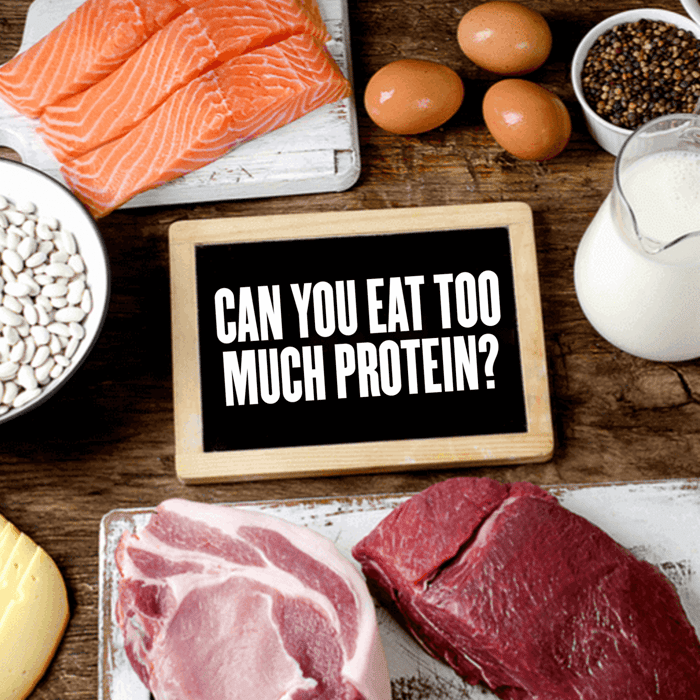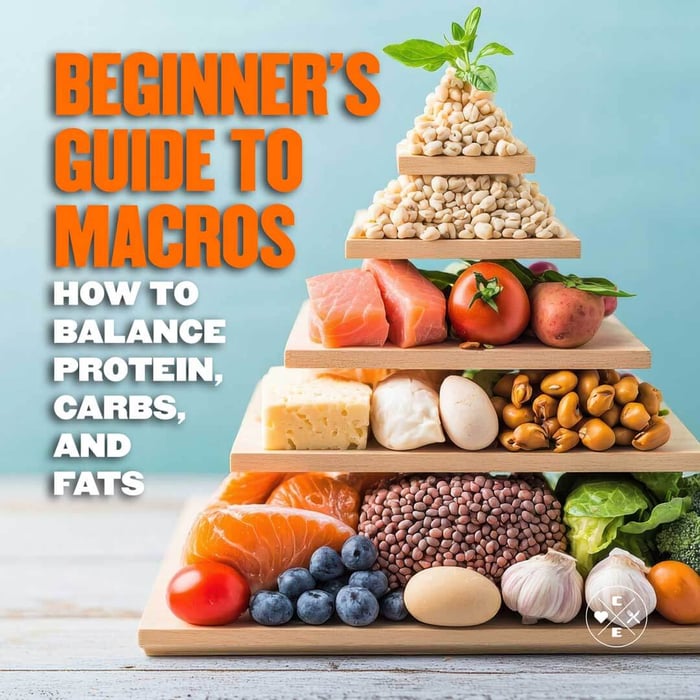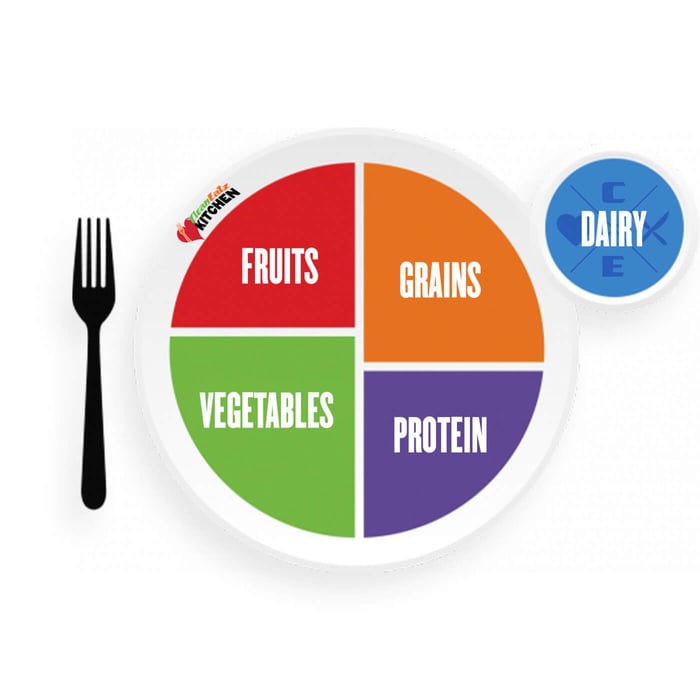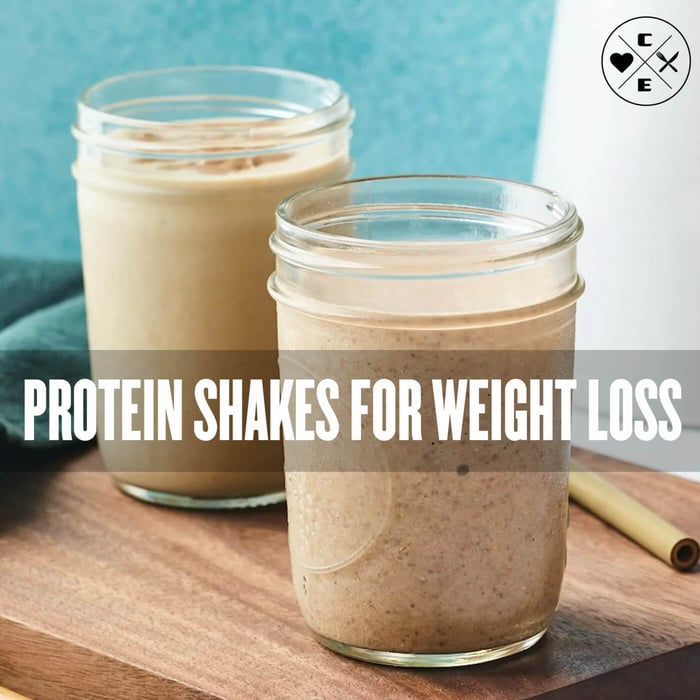Can You Eat Too Much Protein? Safe Limits, Signs & Smart Targets (2025)

Jason Nista
Nutrition
|
Weight Loss
|
Healthy Lifestyle
10/08/2025 10:45am
4 minute read
Quick answer: Most healthy adults can eat a higher-protein diet safely—especially when it comes from lean and plant sources—so long as it stays within a balanced pattern (fiber, produce, healthy fats). There’s no official UL (upper limit) for protein; practical targets for many adults fall around 0.8–1.6 g/kg/day (RDA up to active/weight-loss ranges). Very high intakes above this may crowd out fiber and other nutrients or be inappropriate for people with kidney disease—check with your clinician if you have medical conditions.
On this page
- How much protein do you need?
- So… can you eat too much protein?
- Signs you’re overdoing protein
- Better sources & plate balance
- What to eat from Clean Eatz Kitchen
- FAQ
How much protein do you need?
- RDA: ~0.8 g/kg/day (minimum to meet basic needs for most adults).
- AMDR: 10–35% of calories from protein within a balanced diet.
- Active/weight-loss contexts: many adults do well around 1.2–1.6 g/kg/day split across meals (about 25–35 g per meal for most).
- Athletic/strength goals: intakes up to ~2.0–2.2 g/kg/day are commonly used in trained populations with no harm reported in healthy adults short-to-medium term.
So… can you eat too much protein?
There’s no established “UL” for protein, but more isn’t always better. In healthy adults, higher protein intakes have not shown harm to kidney function in controlled studies; bone outcomes are generally neutral to slightly positive when calcium is adequate. The practical risks of “too much” are usually indirect: displacing fiber/produce, leaning on processed meats, or pushing calories too high. People with kidney disease (or other medical conditions) should follow clinician guidance, which often involves lower protein targets.
Signs you’re overdoing protein
- Low fiber or constipation: protein crowding out fruits/veg/whole grains.
- Always thirsty/low energy: skimping on carbs/fats and fluids to “make room” for protein.
- Heavy reliance on processed meats: higher saturated fat/sodium; shift toward lean and plant proteins.
- Unintended weight gain: adding protein on top of, rather than swapping within, your calories.
Better sources & plate balance
- Lean/plant-forward first: poultry, fish, eggs, low-fat dairy, tofu/tempeh, beans, lentils, edamame, nuts/seeds.
- Distribute protein: hit ~25–35 g at each meal for fullness and muscle retention.
- Keep fiber up: aim ~25–38 g/day from veg, fruit, legumes, whole grains.
- Hydration counts: fluids support kidney filtration, especially if protein is on the higher end.
What to eat from Clean Eatz Kitchen
- Build-A-Meal Plan — set portions/macros (25–35 g protein per meal is easy to hit here).
- Meal Plans — curated options for higher-protein, calorie-controlled days.
- Clean Eatz Protein Powder — convenient way to round out per-meal targets.
- Protein PB&J — 11 g protein snack to bridge long gaps without blowing calories.
FAQ
How much protein is “too much” per day?
There’s no official UL. Most healthy adults do well inside the AMDR (10–35% of calories). Practical upper ranges often land near 1.6–2.2 g/kg/day for trained or weight-loss contexts; beyond that, quality and overall diet balance matter more than chasing bigger numbers.
Is high protein bad for kidneys?
In healthy adults, randomized and controlled studies show no adverse effect on kidney function. If you have kidney disease or risk factors, follow your clinician’s protein prescription.
Does high protein hurt bones?
Current reviews don’t show harm; when calcium is adequate, higher protein is generally neutral or slightly beneficial for bone outcomes.
Can too much protein trigger gout?
Total protein isn’t the issue so much as purine-rich foods. Organ meats and some seafoods can raise uric acid, while dairy and plant proteins are friendlier options—especially if you’re prone to gout.
Related Articles
Are Protein Shakes Good for Weight Loss?
5 minute read



